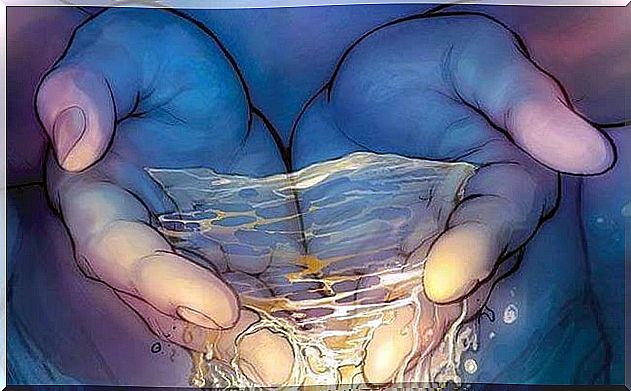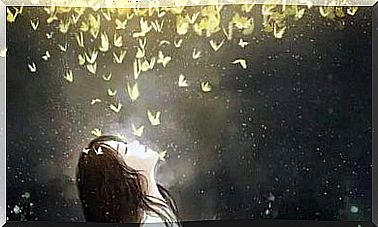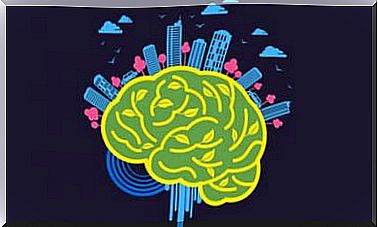How Our Minds Create The Whole World From Snapshots

You may have never thought about it explicitly, yet our minds work non-stop as editor -in- chief of our reality. In the ‘direction’ or control room, our mind receives a constant stream of information from all five senses, with the endless task: integrate these fragmented environmental stimuli into a plausible and believable whole: the so-called reality.
As an overarching storyteller and interpreter, it strings together all the colored beads of our lives with a red thread. Not only what we physically hear, see, feel, taste and smell, but also what we feel, find, think and remember inside.
The Fragments of a Novel
Some time ago I happened to read a very amusing anecdote, a veritable aphorism almost: ‘I bought a novella, and my dog ate the beginning, the end, and three dozen pages in between, before I had a chance to read the book myself. read – or at least: what was left of it.’
In a similar way we perceive the world around us, as half-torn shreds and flashes of a story cut, pasted, and jumbled together. Usually we are hardly aware of this, because our mind automatically – and very quickly – allows all the individual puzzle pieces to speak to our imagination, and even completes and invents all kinds of things to make the picture, and the montage, as plausible as possible.
This mechanism cannot be manipulated
The report continued: “Without forcing my dog to reconsider his indecent behavior, but simply by repeatedly pointing him to the damaged and missing pages, I was able to reconstruct – bit by bit – the main storylines. Through soft barking and facial expressions, saving what could be saved.’
From the ironic and slightly absurd situation just described, we learn that it is damn difficult to determine truthfully why (for) and what exactly is missing from a story if we do not know the original version. Precisely because our minds are masters at creatively disguising and even seamlessly repairing narrative gaps in our autobiographical ‘wardrobe’. In most cases, it is an almost perfectly existential tailor, and the fixes are virtually invisible. That’s why it’s so hard to catch our minds live and in the act of this thumb sucking habit.
Distinguishing fiction from fact is – more often than we dare to admit – based only on a tentative, or even premature hypothesis. This is not a higher science, but a voluntary and subjective attempt to uncover the truth, or at least get as close as possible to it. At the same time, we must not forget that our brain also obeys Occam’s razor principle, and as a rule opts for the most economical solution, and explanation.

Does this involuntary fill-in of our mind have practical consequences, or dangers?
Normally: no. Our brains are extraordinarily intelligent, and subtle in comprehension. For example, if we hear that someone was “up early” this morning, we assume that they got out of bed before 9 am, or earlier.
However, should we learn that Jan (or everyone) is systematically late at the office this morning, last week, and last month, we conclude almost in advance that he ignores any punctuality and throws the proverbial cap at it. . That doesn’t necessarily have to be the case, of course, but our mind likes to turn a simple, ‘innocent’ fact – Jan was too late once again – into a moral: ‘He is this and that, this or that…’, and for this reason and therefore and so on. Our memory stores people and events as makeshift profiles, mixed with related opinions and prejudices from the past.
Our minds are shrewd, and – on occasion – even opportunistic. The ad hoc theory that best serves its interests is premeditated and presented to the outside world as the official report. Because it is possible that Jan is not to blame for his delay or absence, and that his statement of reasons does indeed turn out to be legitimate. This alternate and now unresolvable scenario is not favored by our impatient, black-and-white-obsessed minds. Too complicated, too nuanced.

Our mind protects us
Why do we find it – apparently – less complicated to assume that Jan has lost all interest in his work, than that he possibly has a serious problem? Because, in the latter case, we have to proactively contact him, and , directly, and straight to the point. However, we have too little faith – in ourselves as well as in Jan – to de facto interfere with or care about his life.
We could carefully approach someone from his or her social circle to find out what’s going on. This will probably lead to furrowed eyebrows, a reproach for being pushy, or even to more gossip and confusion. But suppose Jan is actually in trouble, and needs help, shouldn’t we at least try to help him as soon as we find out?
We sat quietly behind our desks until suddenly Jan’s empty spot caught my eye, and our mind spontaneously came up with different motives. Once so distracted and mentally engaged with the issue, we almost oblige ourselves to get to the bottom of this ‘case’, and solve the problem projected onto Jan for him.
That is also where the previously referenced story ends: ‘The denouement of the novella seemed a happy coincidence: one of the most intriguing and attractive characters was – and I do not know why – the defendant, was charged with murder, while the previous pages evidently proved his innocence, and even he had nothing at all to do with the atrocity. The police officer who is about to arrest him – wrongly – takes a cigar from his inside pocket, and without the reader ever knowing whether it is (still) lit, there is the hard cover, in other words: the indefinable end. The rest is left to our own imagination.
Freedom is in your mind and your emotions
What is freedom? Do we really need to search within the confines of the physical world we live in? Is there more freedom in one part of the earth than in another… Read more.









